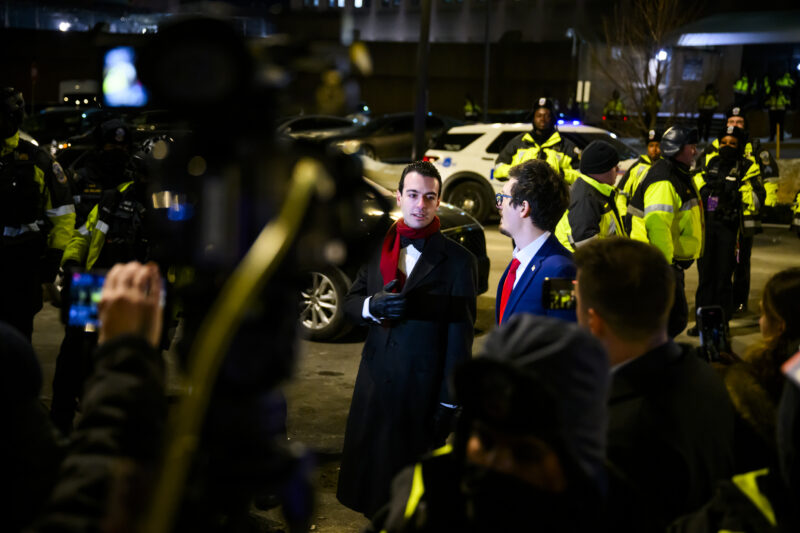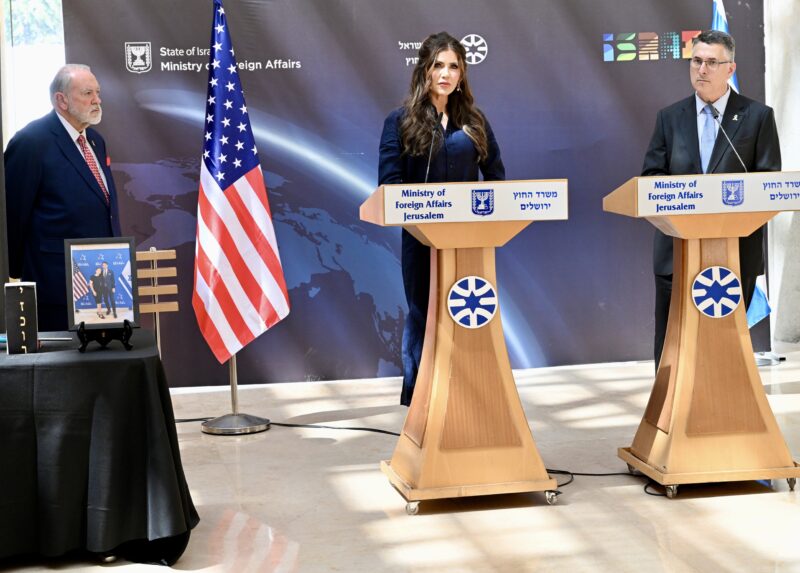Jason Greenblatt, Rahm Emanuel face off over Trump’s record on antisemitism, Israel
Trump’s former special envoy to the Middle East and Obama’s former chief of staff debated Trump in an event moderated by SAPIR Editor-in-Chief Bret Stephens

Haley Cohen
Jason Greenblatt and Rahm Emanuel debate President Donald Trump at 92nd Street Y The Sapir, 15th May, 2025
Is President Donald Trump good for the Jews? The question has been asked since his first term, when he made several high-profile moves that were widely praised in the Jewish community — moving the U.S. embassy to Jerusalem, recognizing Israeli sovereignty over the Golan Heights and bringing together the historic Abraham Accords, to name a few. Now in his second term, with Trump squaring off with universities and revoking the visas of some foreign students in the name of combating antisemitism, Jews continue to debate the question.
Two prominent Jewish voices put forward their arguments on Thursday night — Jason Greenblatt, who served as Trump’s special envoy to the Middle East during the first administration and, prior to that, had worked for him for 20 years, and Rahm Emanuel, former chief of staff to President Barack Obama. The charged debate, held at the 92nd Street Y in Manhattan, was moderated by SAPIR Editor-in-Chief Bret Stephens.
Trump’s crackdown on universities — which has involved cutting billions of dollars in federal funding to some elite schools — “is using antisemitism to deal with political retribution,” Emanuel said. “Everytime we have been pitted against other people, Jews have come on the negative side of that,” he warned.
“The president isn’t responsible for antisemitism,” Emanuel continued. “But he is responsible for the moral tone in that office to condemn it when he sees it and he’s always walked away from that, and he’s given a permission slip publicly for that antisemitism.”
Emanuel called it “revealing” that in a three-page letter the Trump administration sent to Harvard University earlier this month, stating that federal agencies will no longer provide the institution with grant funding, the word antisemitism “was never mentioned.”
“You want to deal with antisemitism, come on into the trenches,” Emanuel said. “But don’t use antisemitism as cover for your political agenda.”
Greenblatt fired back, calling it “ironic” that “Harvard is fighting to stop the Jews from protecting their civil rights and Trump is fighting for their civil rights.”
“Trump is being very aggressive” in his battle with higher education, Greenblatt continued. “But I think appropriately … Trump said there is a serious problem and [he is] going to fight it with a heavy hand.”
On foreign policy, Emanuel argued that Trump has “put Israel to the side,” pointing to several actions this week, including the president’s meeting and handshake with Syrian President Ahmed al-Sharaa, a former leader of Al-Qaida, as well as securing a ceasefire with the Houthis that did not include Israel.
Emanuel also pointed to emerging isolationist instincts in Republican politics and Trump’s promotion of the “America First” policy.
“An America isolated from the world is not good for Israel because Israel has always had America as its protector. An isolated America is not good for the Jews,” he said.
As it relates to integrating Israel with the region, Emanuel said, “Trump’s actions show that if the president of the United States is willing to ignore Israel — not consult with it — that is going to send a signal to not only the Gulf countries but [also] others.”
The debate comes as Trump recently reportedly entered into direct peace talks with Hamas in an attempt to broker an end to Israel’s war with the terrorist organization in Gaza.
Greenblatt praised the talks for leading to the release this week of Israeli-American hostage Edan Alexander, who had been held in Hamas captivity for 583 days. “Sometimes you just have to do what you have to do and talk to the worst people in the world to actually make progress,” he said.
“Similarly, with the Houthis,” Greenblatt continued, “Trump’s job is to protect the United States of America. I wish he could stop the Houthi problem for both the U.S. and Israel, but he can’t. So he’s taking step one, which is fixing it for the U.S.”
Greenblatt called for a wait-and-see approach. “It’s not fair to say from one week of action that Trump has abandoned Israel because he made a deal with the Houthis.”





































